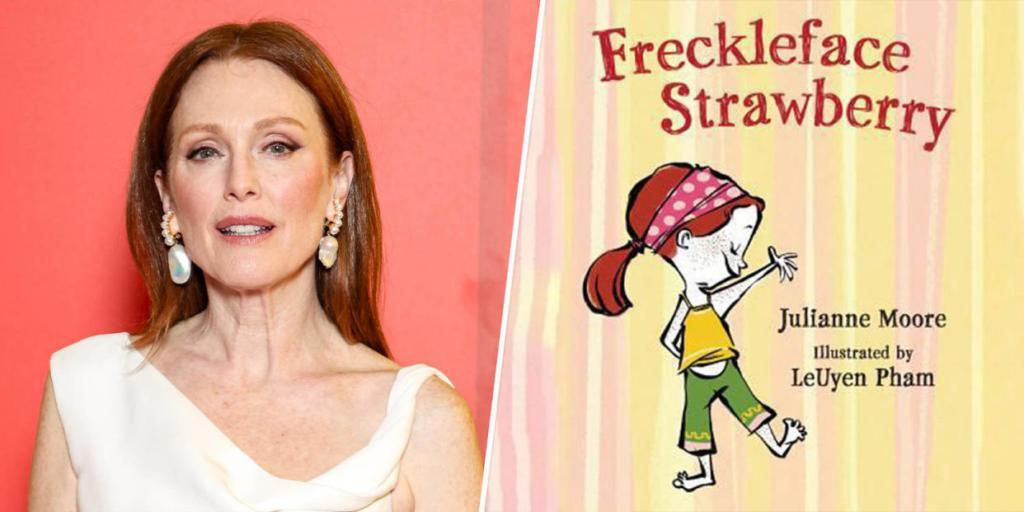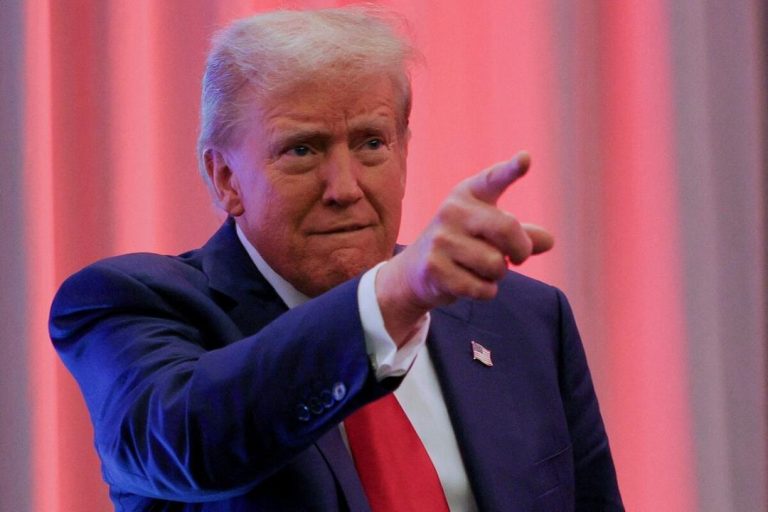
Trump Administration Bans Julianne Moore’s Book from Schools
In a shocking move, the Trump administration has banned Julianne Moore’s popular children’s book, “Freckleface Strawberry”, from US military schools under a directive reviewing materials on gender and equity. The book, which has been widely praised for its portrayal of childhood struggles and self-acceptance, has been pulled from the shelves of military schools, leaving many to wonder what criteria were used to make this decision.
Moore, a highly acclaimed actress and advocate for LGBTQ+ rights, expressed her shock and dismay at the news, stating that demand for the book had been surging, prompting a reprint. The book, which has been a favorite among children and parents alike, tells the story of a young girl struggling to come to terms with her freckles and finding acceptance in a world that often emphasizes physical perfection.
The decision to ban “Freckleface Strawberry” from military schools is part of a larger effort by the Trump administration to review and restrict materials related to gender and equity in schools. The administration has come under fire for its efforts to roll back progress made on issues such as LGBTQ+ rights and gender equality, and the ban on Moore’s book is seen by many as a further example of this.
Moore has been an outspoken advocate for LGBTQ+ rights and has used her platform to raise awareness about issues affecting the community. Her book, which was first published in 2007, has been praised for its portrayal of a young girl who is confident in her individuality and celebrates her unique qualities.
The ban on “Freckleface Strawberry” has been met with widespread criticism, with many calling it a form of censorship and a blow to the rights of children to access diverse and inclusive literature. The American Library Association, which has long been a champion of intellectual freedom and the right to read, has spoken out against the decision, stating that it is “deeply troubling” and “contrary to the values of intellectual freedom and the importance of diverse perspectives in education”.
The Trump administration has defended the decision, stating that the book is “problematic” and that it does not align with the administration’s values. However, many have questioned the criteria used to make this decision and have accused the administration of using its power to restrict access to information and ideas that do not align with its political agenda.
The ban on “Freckleface Strawberry” is not the only example of the Trump administration’s efforts to restrict access to information and ideas. The administration has also been accused of censoring scientific research and restricting access to information on topics such as climate change and reproductive health.
The impact of the ban on “Freckleface Strawberry” is likely to be felt far beyond the military schools where the book was banned. The book has been widely praised for its portrayal of childhood struggles and self-acceptance, and its removal from schools will likely have a ripple effect on the broader cultural landscape.
Moore has spoken out against the ban, stating that it is a “sad day” and that she is “deeply disappointed” in the administration’s decision. She has also used her platform to raise awareness about the importance of diverse and inclusive literature and to advocate for the rights of children to access a wide range of books and ideas.
As the debate over the ban on “Freckleface Strawberry” continues to unfold, one thing is clear: the Trump administration’s efforts to restrict access to information and ideas are a threat to the very fabric of our society. The administration’s actions are a reminder that the freedom to read and access information is a fundamental right, and that we must continue to fight to protect it.




